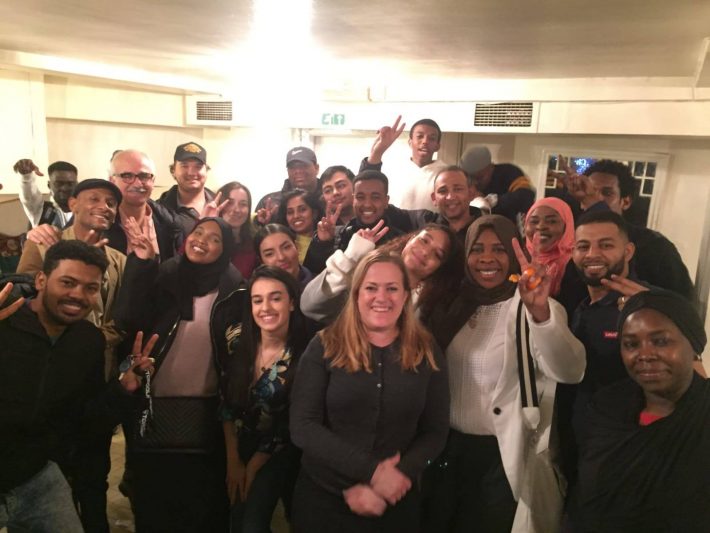Democratic Education Network in Hopetowns
As part of Democratic Education Network (DEN), students and staff visited Hopetowns on Sunday, 17th of February. Hopetowns is one of the community-based projects, led by DEN on the initiative of an undergraduate student, Zeenat Khan and a PhD student Marta Welander at the University of Westminster. The London-based project offers solidarity and support for the well-being and successful integration of refugees and asylum seekers in London. DEN has been working with HopeTowns since October 2018. Samer Saifeddin Abdulkarim Mustafa, a former refugee and community leader, founded HopeTowns only a few weeks after arriving in the UK in 2016.
DEN organised the first food festival on the 22nd of November 2018 to launch our project with the objective of inviting the refugees and asylum seekers associated with Hopetowns to engage with students in an open dialogue about different topics and participate in a cultural and social exchange. Whilst being able to enjoy food from different parts of the world, we sat around chatting about our origins, the trials these refugees have faced and the best possible methods to confront the obstacles they currently face whether at school or in their communities. After this event, we were all eager to meet up with them again and continue having beneficial dialogue for everyone involved.
Our second international food festival was hosted by HopeTowns themselves. They invited us for a wonderful night in which they personally introduced me to traditional Sudanese food and coffee, music and dance. It was a great pleasure to meet new people and catching up with those we had met before. We bonded over food, music and the stark difference in our realities. It has been increasingly beneficial to all of us at DEN to continue interacting and maintaining this relationship with Hopetowns as not only has it helped us to become more aware of different cultures and situations, it has provided a platform for an open and conducive conversation. Other students and I have had the opportunity to realise that being a “refugee” is not a one-size fit all term. From speaking with the refugees, we’ve realised that there are countless situations, completely different in nature, that have brought these people to London under the status of a “refugee”. It was eye-opening to meet these people with different stories and experiences.
It is also important for us to continue our collaboration because there is so much more that we can learn. Simply in speaking with them and encouraging conversation on various topics, we’ve worked together to overcome language barriers which is a crucial aspect of integration in a new society. Through speaking with Hopetowns and its’ members, we have become more aware of the help that they need, and we are organising future events tailored to their specific needs and wants. Maintaining a strong and fruitful relationship with HopeTowns we will only improve the way our understanding of the refugee situation and the (multi) culture around us.
Camille Hoy
Politics & International Relations, Year 2.
